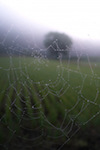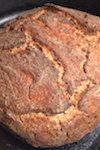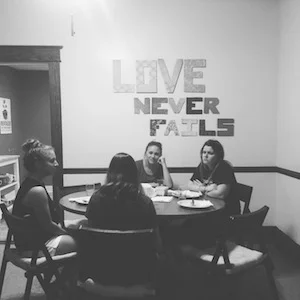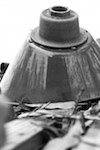 The squirreled-away baguette’s crust is so hard you can smack it on the counter and it won’t break. It is like a crouton — one big, long, stick of crouton. It has not bred worms and it does not stink, but you can’t eat it either.
The squirreled-away baguette’s crust is so hard you can smack it on the counter and it won’t break. It is like a crouton — one big, long, stick of crouton. It has not bred worms and it does not stink, but you can’t eat it either.
In your real life, you like to stock up, relying on your own ingenuity and foresight. Wince as you try to break the baguette one more time. Maybe right now you’re in Paris, dining while sitting down, saving butter for the morning, learning to count to five, but probably you’re just the same person, wherever you are, same fear, same neuroses, same old tired you.
Then, all at once: a miracle.

































